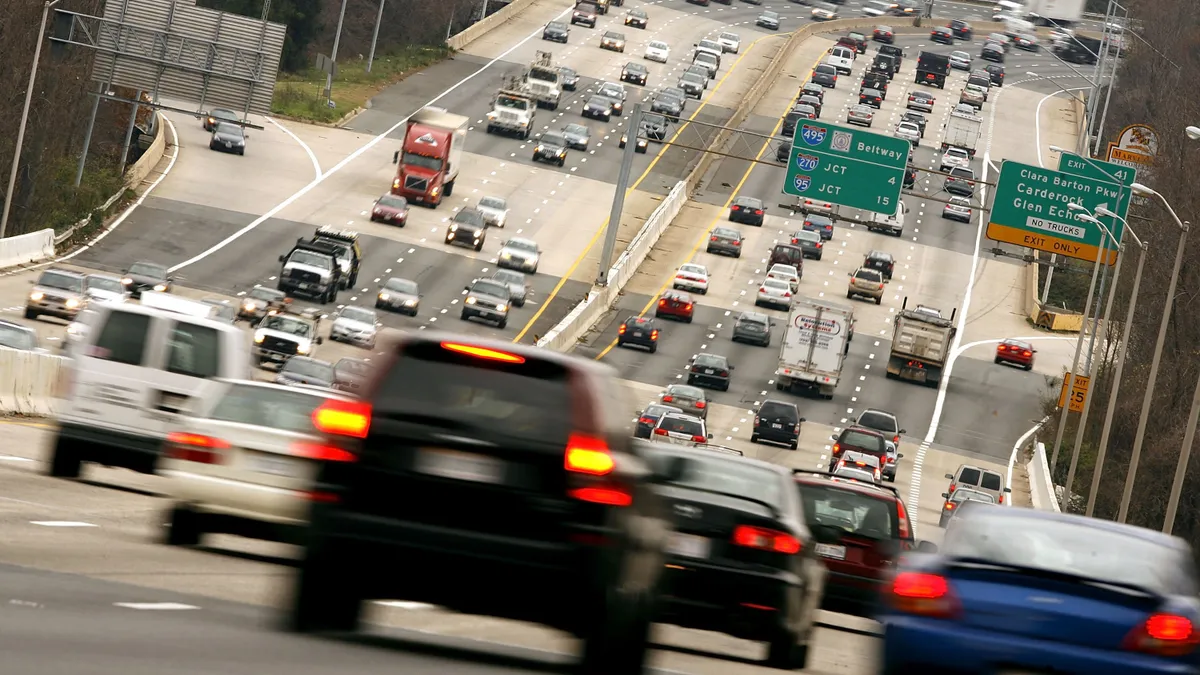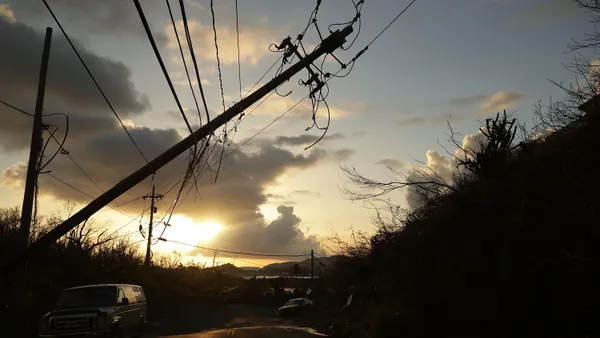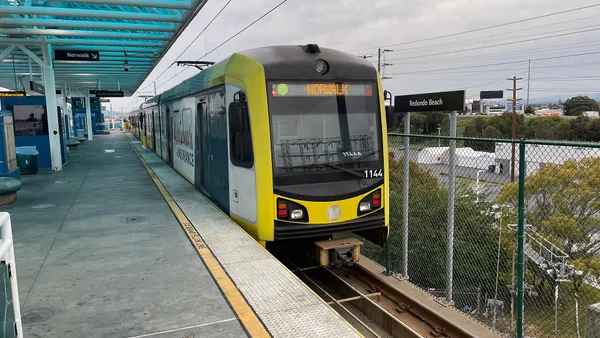UPDATE: March 16, 2023: The lead partner has pulled out of the Capital Beltway and I-270 widening project in the Washington, D.C., area. Melbourne, Australia-based Transurban, lead partner in a private consortium known as Accelerate Maryland Partners, announced the move on March 9. Transurban said the project faced challenges including delayed environmental approvals, a changing political landscape and lawsuits from environmental and neighborhood groups.
Tutor Perini was selected in September 2022 as the design and construction contractor for the project. The Los Angeles-based contractor said last week that it had been advised that the Accelerate Maryland Partners was no longer proceeding with the project.
“We were extremely disappointed to learn last week that Accelerate Maryland Partners will not be proceeding with the Maryland express lane project, which we believe would have added several billion dollars to our backlog later this year,” said Tutor Perini Chairman and CEO Ron Tutor in an earnings call on March 15. “However, we are hopeful that we will have another chance to pursue this project as it goes out in the future, probably as a design-bid-build.”
The future of the project, considered to be the largest public-private partnership in the nation, is now unclear. Former Maryland Gov. Larry Hogan had been a big booster of the project, which had been plagued by delays and controversy. Current Maryland Gov. Wes Moore, who took office in January, has said he wants to change course on the project, Maryland Matters reported.
Original story continues below.
Dive Brief:
- Maryland DOT has selected Los Angeles-based general contractor Tutor Perini to design and build toll lanes along about 14 miles of I-495 and I-270 in the Washington, D.C. area, the company announced on Sept. 21. The state agency has estimated this first phase of construction will cost $3.75 billion to $4.25 billion, the Washington Post reported, and the overall cost is estimated at $11 billion or higher.
- Accelerate Maryland Partners, a private conglomerate led by Transurban and Macquarie Capital, is in charge of the public-private partnership, which will extend through Maryland and Virginia. Melbourne, Australia-based Transurban owns and operates existing toll lanes in Northern Virginia.
- Before it can break ground however, AM Partners must land a 50-year contract with Maryland DOT to finance, construct and operate the lanes in exchange for most of the toll revenue. The Federal Highway Administration last month gave the project a key approval. That decision and the signing of Tutor Perini have given the stalled project momentum, but hurdles remain.
Dive Insight:
When complete, the widening of I-270 and I-495 — also known as the Capital Beltway — will cover about 50 miles. The project has multiple components:
- Design and construction to replace and expand the 60-year-old, 10-lane American Legion Bridge.
- On the Beltway, construction of two new High Occupancy Toll lanes in each direction from south of the George Washington Memorial Parkway in Fairfax County, Virginia, to west of MD-187 in Montgomery County, Maryland.
- On I‑270, the project will convert the existing high occupancy vehicle lane in each direction to a HOT managed lane.
- Construction of one new HOT managed lane in each direction on I-270 from I-495 to north of I-370, and on the I-270 east and west spurs.
The effort is expected to generate $12.6 billion in construction-related economic activity, according to a 2022 assessment report conducted by the Center for Regional Analysis at George Mason University.
Tutor Perini’s team includes:
- Bridgeport, Connecticut-based O&G Industries for Phase 1 South A.
- Pewaukee, Wisconsin-based Lunda Construction for Phase 1 South B.
- Parsons Corp. as lead designer for both components.
More hurdles before shovels can hit dirt
Maryland Gov. Larry Hogan has been a big booster of the project, but for a variety of reasons many locals are not as enthusiastic. Hogan hopes the Board of Public works will sign off on a contract with Transurban before he leaves office in January, according to Maryland Matters.
That’s because other gubernatorial candidates have suggested they would take a different approach to relieving traffic congestion, such as improving transit instead, which could jeopardize the effort. A final agreement on the design and financial terms of the construction contract must still be reached, and approved by the Maryland Transportation Authority.
However, this is by no means the project’s first hurdle. The original construction partner, Archer Western, separated from AM Partners for unknown reasons. A losing bidder, Capital Express Mobility Partners, is suing the Maryland DOT over allegations that the agency’s procurement process was flawed.
In addition, local planning groups have fought the project on environmental grounds, and residents whose homes and properties would be seized through eminent domain have also spoken out. Some opponents have now signaled they may sue to stop the project, the Washington Post reported in July.












